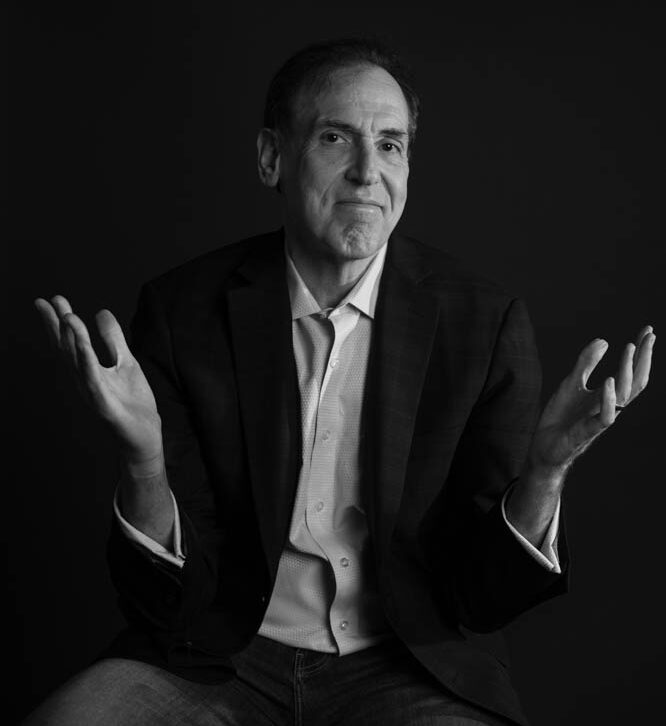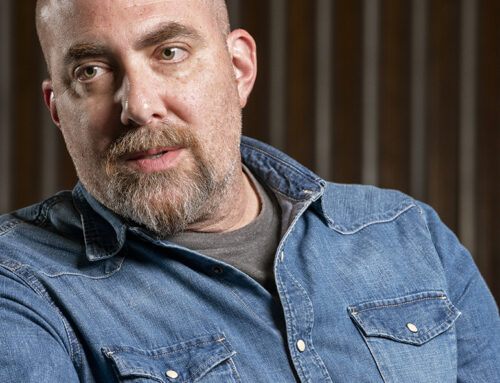
Photography by Victoria Gomez
Easter weekend, 2006, Preston Hollow-resident Brian Cuban woke up in his apartment, surrounded by cocaine, alcohol and his girlfriend, who was beginning to see a side of Brian that he’d worked very hard to hide.
His girlfriend had no prior knowledge of his addiction, so when she went out of town to visit family, Cuban decided to go out and “party,” then come home to shower and sober up before his girlfriend returned home. Instead, he blacked out.
“Next thing (I knew), it was two days later and I’m laying in bed and there’s cocaine everywhere, there’s alcohol and she’s staring down at me,” Cuban says. “She didn’t know I had been (at a psychiatric facility before) … She was crying and I’m thinking she’s going to leave me.”
But 18 years later, they’re still together.
After spending time at the facility and with the support of his brothers, Mark (yes, that Mark Cuban) and Jeff, Cuban was able to get sober. And over a decade later, he’s turned his story into inspiration for this novel series. The latest novel, The Body Brokers, came out last month.
Cuban’s story started in 1986, when he moved to Dallas to live with Mark after obtaining his law degree.
“I went to Pitt Law and took the PA bar and then took a Greyhound bus with about $200 to my name,” Cuban says.
It wasn’t a smooth ride into the corporate world, however. Cuban was an alcoholic, and going out with his single, socially active brothers didn’t help.
“In the summer of 1987, I discovered cocaine in a bar in the Crescent Hotel in Downtown Dallas, and did my first line of cocaine there,” Cuban says. “And cocaine and alcohol took over my life, and it eventually destroyed my career as a lawyer. In between that and three failed marriages as a result of drug use.”
Plus a near suicide attempt in 2005. A DWI arrest. A stay at Green Oaks Hospital.
“This is where privilege comes in. I had no clients left, and Mark was really keeping me above ground, keeping me from living on the streets, and that is a privilege obviously,” Cuban says. “I acknowledge that not many people have a billionaire brother who loves them dearly and doesn’t want to see them go down the tubes.”
Cuban credits his relationship and his brothers with surviving. Growing up the middle of three brothers, just like his dad, he recalled his father’s words.
“He’d say, ‘Guys, no matter where you go in life, no matter what happens, pick up the phone and call your brother. Tell your brother you love him and make sure your brother is OK,’” Cuban says. “I thought about that, and I didn’t want to lose my family. My father was passing down a gift that is a privilege, right? The gift of family is a privilege.”
“Decades later, 1,200 miles from Pittsburgh, where we grew up, I can walk to Mark. I can walk to Jeff. My father, until he passed away in 2018, lived across the street from me,” Cuban says. “That was kind of the jumping off point for my recovery.”
Once he joined a 12-step program and became sober, Cuban was hit with another reality — he didn’t actually want to be a lawyer.
Cuban had originally wanted to be a police officer, he says, but while sitting in an office at Pennsylvania State he overheard some students talking about the LSATs and the upcoming three years of law school. For Cuban, this meant the potential for three more years before having to deal with his addiction.
As Cuban began booking speaking events and working with organizations that assisted those in active addiction and mental health advocacy, he ventured into a new career as an author.

He published his first book in 2017, The Addicted Lawyer: Tales of the Bar, Booze, Blow, and Redemption. The book discusses his career and coming to grips with his addiction alongside interviews with experts and others in the law profession who are recovering from addiction.
Then, Cuban forayed into fiction. His first book, The Ambulance Chaser, features a Pittsburg personal injury lawyer and part-time drug dealer, Jason Feldman, as he deals with the discovery of remains of a high school classmate who had gone missing 30 years prior.
“The first one definitely had a lot of me in it, and when I look back at that, the main character … there were a lot of similar struggles, and that’s not really a good thing,” Cuban says. “When it comes to writing fiction, the goal is to create characters that are not the writer. That was a learning process, but Jason went through a lot of things that I did, but it also allowed me to make Jason very realistic.”
Last month, Cuban published the second book in the trilogy, The Body Brokers, which follows main character Jason as he deals with the aftermath of his girlfriend dying of a fentanyl overdose that may not be an accident.
“It’s a ripped-from-the-headlines crime thriller that I’m hoping will entertain and challenge traditional notions about illicit fentanyl and fentanyl in the fatal overdose epidemic,” Cuban says. “Like in The Ambulance Chaser, I used real life issues going on today with fentanyl.”
How fentanyl gets sold. How fentanyl comes in the United States. The impossibility of fentanyl poisoning through contact. Through work with organizations focused on fentanyl awareness, Cuban discovered several misconceptions about the drug that he has incorporated into his book.
“We’re losing hundreds of thousands of young people to this problem,” Cuban says. “But these are some of the things I worked into The Body Brokers to challenge these things so people might even walk away from it saying, ‘Maybe I need to look at that a little more.’”






